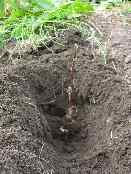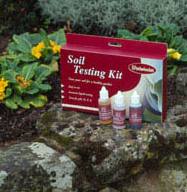Categories
Calendars
Guides
Reviews
Archive
Gallery
Articles
Ask Our Gardening Expert
Your weather dates <% If strCookiePresentUSA = "Y" then Response.Write "are set to the " & strTownUSA & " area in the USA, hardiness zone " & strHardinessZoneUSA Response.Write ".
Your first Fall frost will be in " & arrAlphaUSA(arrIndexUSA(29)) Response.Write " and your last Spring frost will be in " & arrAlphaUSA(arrIndexUSA(11)) else If strCookiePresentAustralia = "Y" then Response.Write "are set to the " & strTownAustralia & " area in Australia.
" Response.Write "Your first Autumn frost will be in " & arrAlphaAustralia(arrIndexAustralia(15)) Response.Write " and your last Spring frost will be in " & arrAlphaAustralia(arrIndexAustralia(26)) else If strCookiePresent = "Y" then Response.Write "are set to " & strTown & " in the UK.
" Response.Write "Your first Autumn frost will be in " & arrMonth(13) Response.Write " and your last Spring frost will be in " & arrMonth(14) else Response.Write " have not been set. They have defaulted to medium settings.
Click here to set the weather dates to your area of the UK or USA." end If end If end If %>
Test For Soil pH
Soil Test Kits For Acid or Alkaline Soil Types
The most acidic soil types are given a rating of 1 with the
most alkaline soil type a rating of 14; a neutral soil type has a pH rating of 7.
Almost all soils however fall within the range of 5 to 9. Note that alkaline soil is often referred to as a lime soil. See the
table below.
pH
Acid/Alkaline
14
Most alkaline
13
12
11
10
Very alkaline
9
Alkaline
8
7
Neutral
6
Slightly acid
5
Acid
4
Very acid
3
2
1
Most acid
The
majority of plants do best in a 'pH' of about 6.5, but a range of 6 to 7
is acceptable for most. If your soil type is outside these limits, or you
want to grow plants which prefer and alkaline or acid soil type, you will
need to adjust the 'pH' of your soil. Measuring the 'pH' The kit in the picture is a chemical one, but there are
also easier and cheaper versions,
click here to buy one of these from
our recommended suppliers. The
other alternative is to ask your immediate neighbours who may have
carried out their own tests on untreated soil. Raising
The 'pH' - Make Soil More Alkaline Slaked
Lime - the most commonly available, it does the job well. Often
simply called 'garden lime' on the package. Lasts about two years. When
applying lime, follow the instructions carefully, too much and the plant
roots will be scorched. It is better to apply smaller amounts at shorter
intervals than too much in one go. Remember that altering the 'pH' of
your soil is not an exact science, so absolute accuracy is not
important. Apply the lime about a month before sowing or planting and don't apply lime at
the same time as manure - the result will be lots of ammonia gas which
will deplete the soil of nitrogen. Lowering The 'pH' - Make Soil More Acid If you really want to grow acid loving plants in an alkaline (chalky) soil,
you will need to resort to raised bed system plant cultivation. The idea
is that the chosen area of soil is isolated from the rest of the garden by
enclosing it with a barrier such as railway sleepers. The barrier is
placed securely on the ground and filled with acidic peat and soil. As
long as the soil is kept acidic by regular additions of compost and
manure, acid loving plants should grow well.
END OF ARTICLE
 Your soil type can be acid, alkaline or neutral (mid way). This acidity
or alkalinity is commonly called
the 'pH' of a soil. The 'pH' is simply a measurement of how much lime
there is in the soil.
Your soil type can be acid, alkaline or neutral (mid way). This acidity
or alkalinity is commonly called
the 'pH' of a soil. The 'pH' is simply a measurement of how much lime
there is in the soil.
 The only practical way of accurately testing the pH of your soil is to buy a
soil testing kit from your local garden centre - they
are cheap and surprisingly accurate. Most pH test kits work on the same principal of
adding a small amount of soil to a syringe which has a filter in it. Add
some of the special 'pH' testing fluid to the syringe and squirt the
resulting mixture into a test tube. Compare the colour of the mixture to
a colour-coded chart and you will then know the 'pH' of your soil.
The only practical way of accurately testing the pH of your soil is to buy a
soil testing kit from your local garden centre - they
are cheap and surprisingly accurate. Most pH test kits work on the same principal of
adding a small amount of soil to a syringe which has a filter in it. Add
some of the special 'pH' testing fluid to the syringe and squirt the
resulting mixture into a test tube. Compare the colour of the mixture to
a colour-coded chart and you will then know the 'pH' of your soil.
The 'pH' of a soil can be raised by adding lime. Their are several types of lime available each
one doing the job, but in different ways.
Ground Limestone - this is slightly better than slaked lime
because it lasts longer in the soil (three years or more) and also
contains magnesium. Often called 'Dolomite Lime'. More expensive than
Slaked Lime.
Calcified Seaweed - similar to Ground Limestone, but it also
contains more trace elements. The most expensive.
Hydrated Lime - often called 'Builders Lime'. It is cheap and
does the job, but needs topping up each year.
Adding compost and/or manure to the soil is the only practical way to
naturally lower the 'pH' of your soil. It is rare that a soil type is so acidic
this will not work.